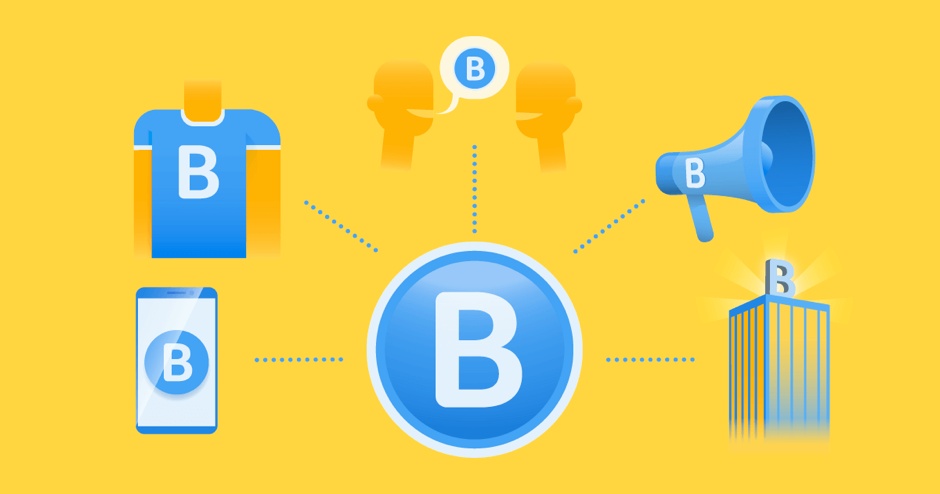Promoting an event and attracting enough attendees is difficult.
In fact, event marketing might just be the biggest challenge for you as an event planner, and you can’t have a strong marketing strategy without having a strong brand for your event in the first place.
This is why coming up with a great name for your event is crucial. An event name that is attractive, easy to remember, and piques your target attendees’ interests can be a very valuable asset for your event.
So, where should we begin in choosing an event name? Below we will discuss some effective tips to get it right, along with some actionable ideas.
Without further ado, let us begin right away.

Key Principles for a Good Event Name
Event names are the first impression your attendees, potential sponsors, and clients will have on your event. And, people do judge the book by its cover.
While there are many different theories and opinions about what makes an event name good, there are three main principles for a good and attractive event name:
- It conveys what the event is about
An ideal event name should effectively explain what the event is so a potential attendee can at least have a basic idea of what to expect from the event right away. Apple’s WWDC (Worldwide Developers Conference), for example, is fairly easy to understand, it’s mainly about technical announcements for software developers, and we can easily differentiate it from the standard “Apple Event” where it’s about product launches.
- It’s attractive and exciting
A good event name will poke the potential attendees’ curiosity and should excite them. People tend to be excited by something that sounds fun, like South By Southwest (SXSW) which is a fun wordplay from a famous film title. Another trick is to have a rhyming and fun-sounding name (Tomorrowland) or abbreviation, like Electric Daisy Carnaval (EDC).
- It’s memorable
As discussed above, rhymes and easy-to-remember names and abbreviations can help the event names stick as top-of-mind.
While there are great event names that don’t really follow these rules, these three principles are a great place to start.
Factors to Consider When Deciding an Event Name
Before deciding on an event name , it’s crucial to first research your audience and also your competition, and figure out all the details of your event based on this research.
You should consider the following factors:
- The objectives and purposes of the event
- What is the key idea of the event? What should its name explain and describe?
- The event’s unique selling proposition and how it distinguishes itself from its competitors
- The competing events’ names
- Who your target audience is and what are they expecting from your event
- How you might surprise their expectation with your name
- Regulations and constraints you should follow when naming your event
Tactics and Tips In Naming Your Event
After you’ve considered the above factors and asked yourself the key questions, you’ll be able to use the following tips and tactics to create an attractive and unique event name:
- Don’t Be Afraid To Dream Big
Name your event with a belief that it will be a big and successful one. Make sure the event name has an adequate amount of flexibility and scalability so it will still be a proper name for a big event.
You can update the event logo and other branding elements later, but it’s best to think big from the start when deciding on an event name.
- Research Competing Events
Another great approach when deciding on an event name is to look at your competitors.
Write as many of your competitors’ event names as you can. See what they have in common, and identify opportunities where you can create a unique event name that will still be familiar in your niche.
The next step is to list all words that are related to your event and its theme. If, for example, all of the competing events are using the word “conference” in their names, then you can leave it out and choose “talk” or other terms for your event name. Remember that uniqueness is important.
- Dictionary Is Your Friend
Go to the dictionary and look for unusual words with great meaning that aligns well with your brand. Lollapalooza, for example, is actually a real word that means “something great/wonderful”, but as we know it’s now an event name for a successful music festival.
- Portmanteau Names
Portmanteau words are two words or parts of words that are fused together to create a new word.
The idea is to use easily recognizable words (or parts of them) to pique target attendees’ interests. “PlayStation” and “Frenemy” are common examples of portmanteau words.
- Consider Using Industry Terms and Vocab
Remember that familiarity is an important ingredient for a good event name. You can use words and terms that are unique to your industry and your audience is familiar with, which can also create a sense of fun.
For example, we can create an event with “SEO” as its abbreviation for a conference with digital marketers as its target audience.
Closing Thoughts
By using the tips and tactics we’ve shared above, you are now ready to create the perfect name for your event.
Once you’ve decided on your event name, it’s finally time to plan and host this event, and an all-in-one event management platform like Eventtia can help you organize your team, ensure a seamless registration, and turn your event into a successful one that can live up to its big name.